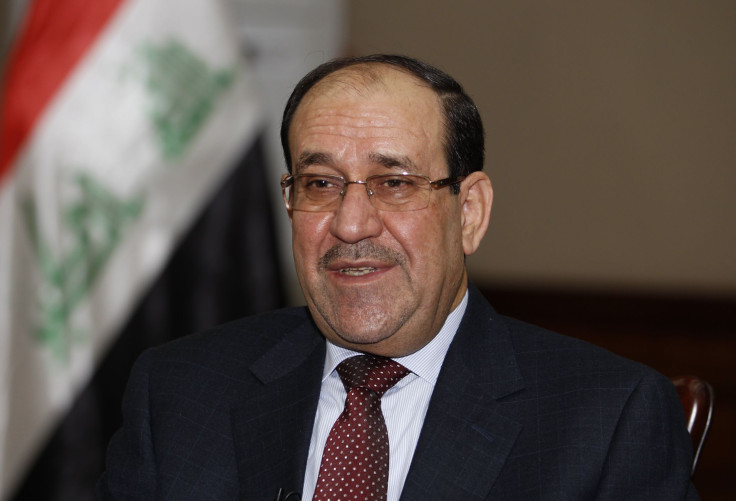Iraq Crisis: Maliki Won't Form Emergency Government But Pledges First Parliamentary Session By July 1

Iraqi Prime Minister Nouri al-Maliki has refused to form an emergency government to deal with the growing threat from the Islamic State of Iraq and Syria (ISIS), the Sunni-dominated jihadist group threatening Iraq's Shiite majority, calling such a move a "coup against the constitution and the political process."
But Maliki said he was committed to forming a new government by July 1, the date required by the Iraqi constitution.
“The call to form a national emergency government is a coup against the constitution and the political process,” Maliki said Wednesday in a televised addressed, according to Agence France-Presse. “The dangerous goals of forming a national emergency government are not hidden. It is an attempt by those who are against the constitution to eliminate the young democratic process and steal the votes of the voters.”
Maliki’s critics, who argue that he hasn’t been inclusive enough of Iraq’s Sunni population -- thus leaving an opening for ISIS to attract disaffected Iraqi Shiites -- see the forming of an emergency government that would include more Shiites as one way to combat ISIS’ progress in Iraq.
While Maliki ruled out the emergency government, he said he was committed to forming a new government by July 1, the date on which the first parliamentary session must be held, according to the Iraqi constitution, after national election results from April were certified last week. While Maliki's coalition won the lion's share of seats in parliament, it doesn't have enough votes to form a government without reaching out to other parties.
"We will attend the first session of parliament in harmony with the constitutional merits and out of the commitment to the call of the Supreme Marjaiya [Iraq's Shiite clergy] and out of loyalty to our people," Maliki said, according to Reuters.
The Iraqi prime minister has faced calls to resign, including from the U.S., although Iraqi officials said those calls were not made publicly.
© Copyright IBTimes 2025. All rights reserved.






















